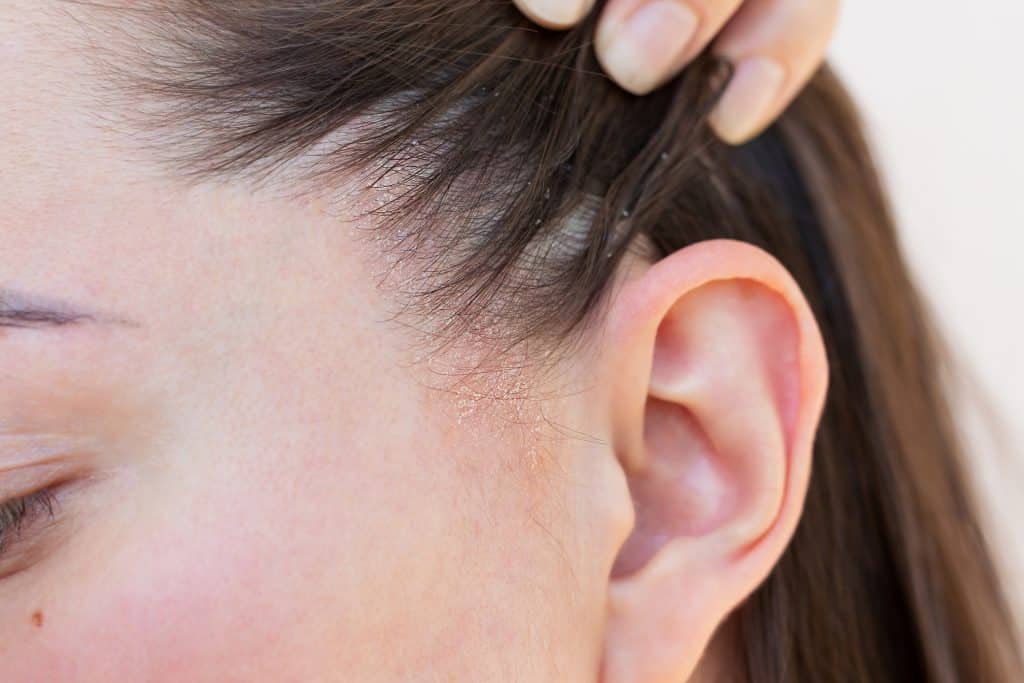The Truth About Coal Tar Shampoos vs. Snail Mucin Shampoos
For decades, coal tar shampoos have been the go-to treatment for scalp conditions like psoriasis. They slow down skin cell growth and can reduce scaling, which makes them effective in the short term.
But here’s the truth: while coal tar has history on its side, it also comes with drawbacks, harshness, unpleasant smell, staining, and safety concerns about long-term use.
Today, there’s a gentler, science-backed alternative: snail mucin shampoos, formulated to hydrate, repair, and soothe sensitive, psoriasis-prone scalps without the side effects.
In this post, we’ll compare coal tar shampoos and snail mucin shampoos side by side, so you can decide what’s best for your scalp.
What Are Coal Tar Shampoos?
Coal tar is a thick, dark byproduct of coal processing. It’s been used in skin treatments for more than a century, particularly for psoriasis, dandruff, and seborrheic dermatitis.
How they work:
- Slows down cell turnover – reduces rapid skin growth in psoriasis.
- Anti-inflammatory effect – temporarily calms redness and itching.
Benefits:
- Reduces scaling and flaking in the short term.
- Widely available in drugstores.
- Sometimes recommended by dermatologists for severe flare-ups.
Drawbacks:
- Unpleasant smell (tar-like, smoky).
- Stains clothes, towels, bedding.
- Can dry out or irritate sensitive scalps.
- Limited to short-term use – not ideal for daily care.
- Regulatory restrictions in some regions due to potential safety concerns.
Coal tar works, but it often feels like a compromise. Relief comes at the cost of scalp comfort and long-term usability.
What Are Snail Mucin Shampoos?
Snail mucin (also called snail secretion filtrate) has become a breakthrough ingredient in modern skincare – and for good reason. It’s packed with hydrating, repairing, and soothing compounds that directly support scalp health.
How it works:
- Hydration: Hyaluronic acid draws in and retains moisture.
- Barrier repair: Peptides and allantoin strengthen the scalp’s natural defences.
- Gentle exfoliation: Glycolic acid lifts away flakes without stripping.
- Anti-inflammatory effect: Naturally calms redness, itching, and irritation.
Benefits:
- Hydrates instead of drying out the scalp.
- Supports long-term scalp health, not just temporary relief.
- Gentle enough for daily use.
- No unpleasant odour or staining.
- Addresses psoriasis triggers holistically: dryness, inflammation, and barrier damage.
Drawbacks:
- Results may take a little longer compared to coal tar’s aggressive effect.
- Works best as a consistent care routine, not a quick fix.
Snail mucin doesn’t just treat the symptoms, it supports the scalp’s ability to heal and protect itself.

Coal Tar vs. Snail Mucin: Head-to-Head Comparison
Feature | Coal Tar Shampoos | Snail Mucin Shampoos |
Mechanism | Slows skin cell growth | Hydrates, repairs, and soothes scalp |
Effectiveness | Fast-acting, reduces scales | Builds long-term scalp resilience |
Scalp Comfort | Can be harsh, drying, irritating | Gentle, soothing, non-drying |
Smell & Staining | Strong odour, stains fabrics | Clean, neutral, no staining |
Daily Use | Not recommended long-term | Safe for everyday use |
Long-Term Benefit | Symptom relief only | Supports healing and barrier repair |
Best For | Severe, short-term flare-ups | Ongoing psoriasis care & sensitive scalps |
Why Bragan Skincare Chooses Snail Mucin
At Bragan Skincare, we never wanted to rely on ingredients that force people to choose between short-term results and scalp comfort.
That’s why we formulated our Sensitive Scalp Shampoo around snail mucin, to provide psoriasis-prone scalps with:
- Lasting hydration
- Barrier support
- Flake reduction without irritation
- Daily relief that feels (and smells) good
We believe scalp care shouldn’t feel like punishment. It should feel like nourishment.
FAQs: Coal Tar vs. Snail Mucin
Q: Is coal tar shampoo safe?
A: Coal tar is regulated and generally safe for short-term use, but many people experience irritation or dislike its odour and staining effects.
Q: Does snail mucin really help with psoriasis?
A: Yes, snail mucin addresses dryness, barrier damage, and inflammation, which are central to scalp psoriasis symptoms. While it’s not a “cure,” it supports long-term scalp health more gently than coal tar.
Q: Should I switch from coal tar to snail mucin shampoo?
A: If you’re looking for a daily, gentle, long-term solution that hydrates and restores the scalp, snail mucin is the better option. Coal tar may still be used for severe flare-ups under a doctor’s guidance.
The Bottom Line
Coal tar shampoos have history, but snail mucin shampoos represent the future.
Coal tar may reduce symptoms quickly, but it comes with drawbacks: unpleasant smell, staining, and harshness. Snail mucin, on the other hand, offers a modern, science-backed solution: hydration, repair, and daily scalp support that psoriasis-prone skin can actually thrive on.
If you’re ready to trade in the harshness of coal tar for something gentle and effective, explore our Sensitive Scalp Shampoo powered by snail mucin.
Featured Bragan Skincare Products
-
€39.99 – €100.00Price range: €39.99 through €100.00Select options This product has multiple variants. The options may be chosen on the product page
-
€100.00Select options This product has multiple variants. The options may be chosen on the product page
